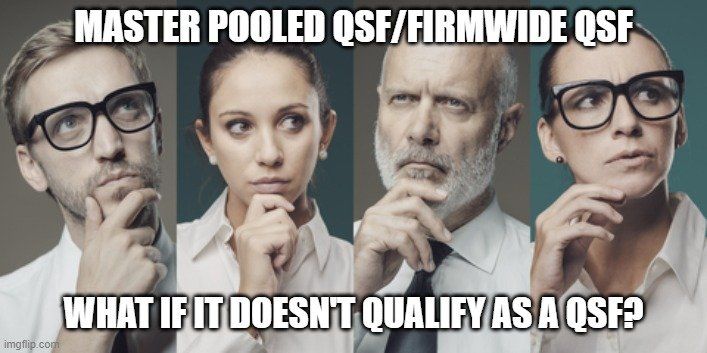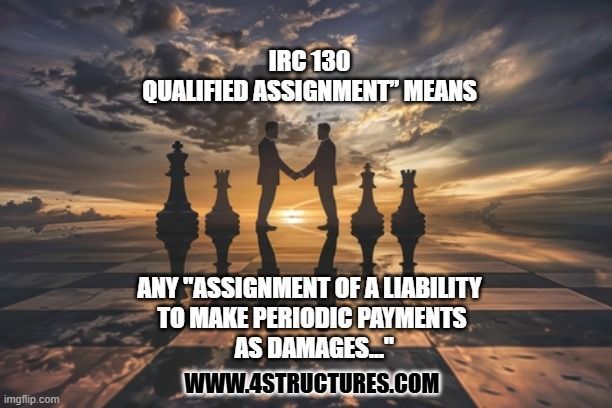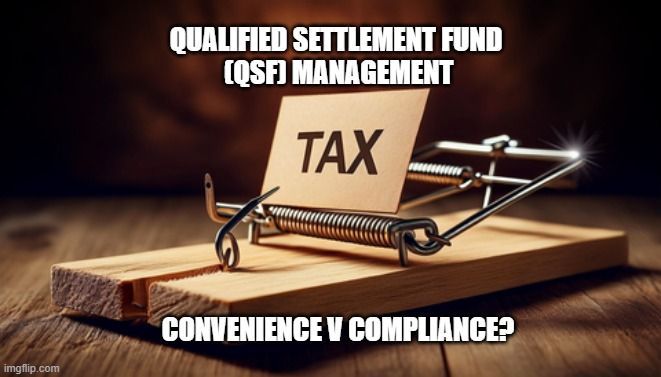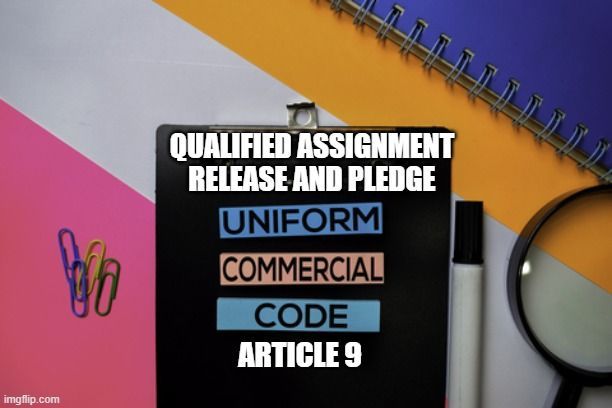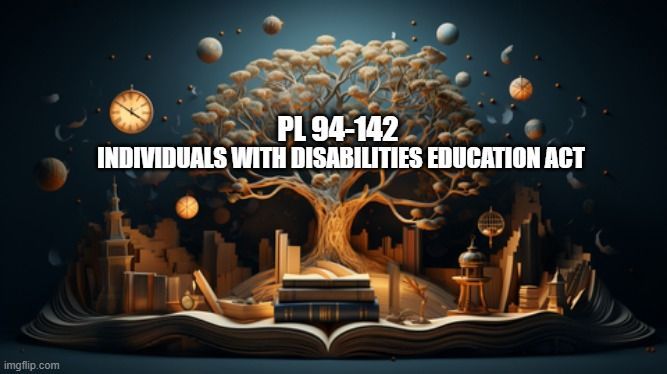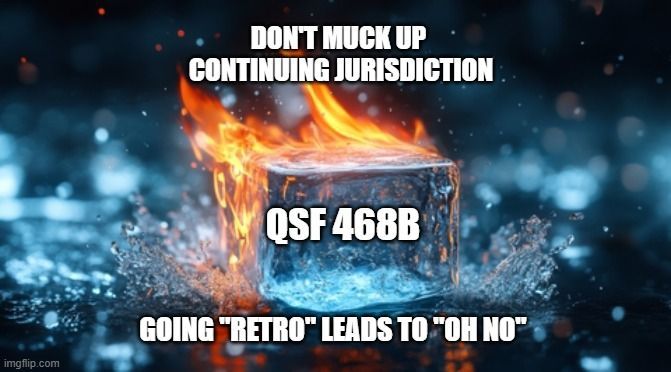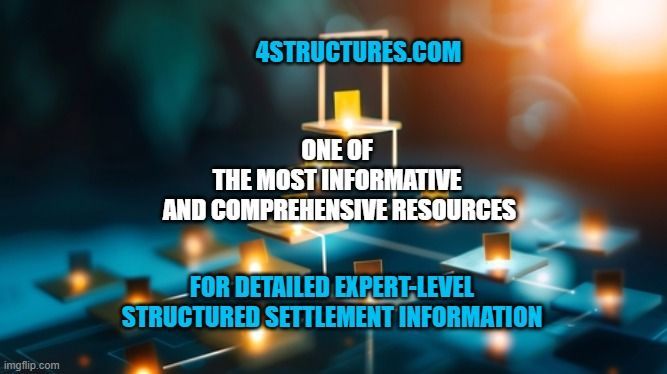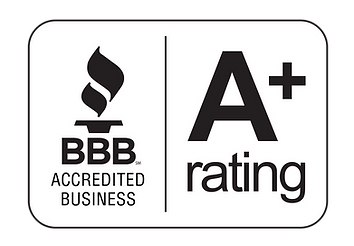What if a Master QSF Isn't a QSF? What are the Consequences?
What Are the Consequences of Rejected QSF Status?

Two Law Firms Have Expressed Concerns Over Firmwide QSFs
My previous post on the subject of Master Pooled QSFs, Firmwide QSFs Debunked, reported a recently issued Legal Memorandum opinion by the law firm of Faegre Drinker Biddle & Reath, LLP, which drew attention to the settlement planning solution heavily marketed by a few settlement planners and raised important questions. I have since been able to locate another opinion on the subject from the Northwestern USA law firm of Lane Powell PC, which comes to a similar conclusion, but delves into the potential consequences if QSF qualification is challenged.
Conclusion of Lane Powell in a February 7, 2019 Legal Memorandum
"Given the technical and practical benefits of QSF status, it is important to satisfy the requirements of eligibility whenever possible. By regulation and ruling the IRS has demonstrated that eligibility requires commonality among the claims for which the purported QSF was established to resolve. Commonality of representing law firm, defendant, or professionals working on the matter is unlikely to satisfy this requirement".
The Lane Powell conclusion was in response to the following question: Can (redacted Law Firm, Settlement Planning Holding Company etc.) aggregate settlement proceeds from unrelated settlements managed by a single client into a Master Pooled QSF trust and retain favorable QSF status?
According to the Memorandum, the poser of the question regularly creates and administers qualified settlement funds (QSFs) and has traditionally structured each QSF as a separate and distinct trust. For efficiency, a client of theirs had asked whether the poser can aggregate settlement funds from unrelated cases.
Lane Powell points to Reg 1.468B-1(c) which defines a QSF as a "fund, account or "trust" with certain attributes among which is a requirement that the fund, account, or trust " is established to resolve or satisfy claims that have resulted or may have resulted from an event (or related series of events) that has occurred and that has given rise to at least one claim asserting liability under certain legal theories"
In IRS Private Letter Ruling 9549026, cited by Lane Powell, the IRS concluded that a trust that does not meet the "event (or related series of events)" requirement does not constitute a QSF. The scenario that gave rise to PLR 9549026, the IRS determined that a trust established to resolve claims against a bankrupt company did not meet the definition of QSF because the claims were unrelated; they included tort-based workers compensation, personal injury, and property damage claims, as well as trade-creditor claims. Though they were all claims against the same bankrupt company, they did not arise form the same event or related series of events"
Lane Powell observes that PLR 9549026 indicates that the IRS does not accept a broad interpretation of the phrase "related series of events". Rather, they say, it appears that the IRS requires commonality between plaintiffs and the claims, and not just the same defendant. Thus, they say, it seems unlikely that the IRS would conclude that a single Master Pooled QSF holding funds from unrelated matters would constitute a QSF merely because the applicable plaintiffs work with the same law firm, professionals, or advisers. As an example, they use a law firm aggregating settlement proceeds from multiple automobile accidents (with claims from different accidents, on different dates and involving different partuies.
What are the Consequences of Rejected or Failed QSFs?
Regularly Cited Benefits of QSFs
- A Defendant's or Insurer's ability to deduct transfers to the QSF.
- The Claimant's ability to avoid taxation of funds received by the QSF.
Effecting a structured settlement using a trust that does not constitute a QSF puts both benefits at risk, says the Lane Powell Memorandum.
A. Potential Risk For Defendants/Insurers
The regulations explicitly state that, in general, a transferor may deduct the value of transfers to a QSF (see Reg 1,468B-3). Should a defendant (or insurer) transfer funds to a trust that does not constitute a QSF, the Defendant may not be able to deduct the value of the transfer. Should the IRS challenge the deduction taken, the Defendant risks liability for interest on unpaid taxes and underpayment penalties.
B. Potential Risk For Claimants/Plaintiffs and Their Lawyers
Should a Claimant be treated as receiving funds held in a purported Master Pooled QSF/Firmwide QSF (i.e. not satisfying the requirement of a QSF), the Claimant would not be eligible to defer receipt for tax purposes by effecting a structured settlement. Thus, in using a purported Master Pooled QSF the claimant risks tax liability (and interest if unpaid) on the non-principal portion of each structured settlement payment, plus any underpayment penalties
If the settlement proceeds were themselves taxable, the Claimant risks a strengthened argument by the IRS that the proceeds were taxable to the Claimant at the time they were transferred to the purported Master Pooled QSF, Firmwide QSF.
About the authors of the Lane Powell Memorandum
Jeremy Babener JD LLM, is a nationally recognized tax attorney who focuses his practice on lawsuit awards, settlements and complex structures. As Special Tax Counsel to Lane Powell, PC, Jeremy advises on tax and business matters in addition to his work outside the firm. He previously served full time in Lane Powell’s Tax Group Advised on tax issues of all kinds for Lane Powell’s diverse practice groups, including business, employment, litigation, and bankruptcy. and later as general counsel and vice-president to firm client Multistream Capital, a financial company selling customized income stream investments. Jeremy regularly speaks and writes on tax issues relating to settlements and structures and serves as a Board Member and Chair of the Legal Committee of the Society of Settlement Planners, where he educates and advises on legal and policy issues for the Society of Settlement Planners (SSP), a national society of holistic settlement planners. Before joining Lane Powell, Jeremy served as a Tax Policy Fellow in the U.S. Treasury Department’s Office of Tax Policy, focusing on partnership tax issues including non-compensatory partnership options and debt-equity exchanges.
Justin E. Hobson, a lawyer with Hathaway Larson. formerly with Lane Powell (when co-authoring the Memornandum) and PriceWaterhouse Coopers. Justin was on Executive Committee – Member At Large, Tax Section, Oregon State Bar 2016-20. Justin Hobson’s practice focuses on corporate matters, with emphasis in mergers and acquisitions, financing transactions, securities offerings, and corporate governance. Justin began his career focusing on international tax and later expanded his practice to include all areas of income taxation and corporate governance. Justin has experience working with clients in a variety of industries, ranging from startups to multinationals. He regularly works with private equity funds and other active business acquirers, target companies, directors and company management.
Lane Powell is a Northwest US law firm with more than 35 practice areas and industries in offices located in Washington, Oregon and Alaska and serves clients on a regional, national and international level.
Last updated March 31, 2023
